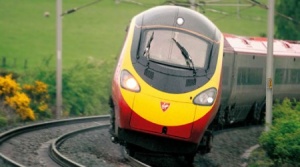Network Rail outlines £37bn programme to overhaul services

The British rail industry today set out a plan to deliver government priorities for rail and respond to the challenge to provide a better value railway for Britain and help drive economic growth.
Responding to governments’ plans for the 2014-19 funding period, published in July 2012, the industry’s strategic business plan marks the culmination of a period of extensive cross-industry working to set out a long-term vision for rail in Britain.
The plan includes a programme of investment which will fund critical new infrastructure required to increase the capacity, capability and cost-effectiveness of Britain’s railway in the face of increasing growth in passenger and freight.
Paul Plummer, group strategy director, Network Rail, said: “Britain’s railways are booming, with more people and businesses choosing rail than ever before and passenger satisfaction at record levels.
“As a business and as an industry we are better placed than ever before to understand what needs to be done to build on this success and create a better railway which meets the needs of customers in a sustainable way.”
The rail industry’s vision for rail in Britain sets out a number strategic goals which it will work together to achieve in the years ahead.
These include passenger satisfaction levels of at least 90 per cent and to deliver capacity for approximately twice as many passengers, with reduced journey times and better connectivity.
Network Rail will also seek to provide a more attractive offer for freight, resulting in higher customer satisfaction and increased rail modal share, with offering levels of reliability and safety among the best in Europe.
Michael Roberts, chief executive of the Association of Train Operating Companies (ATOC), said: “We aim to build on today’s near record levels of customer satisfaction by combining the best of the public and private sectors to provide newer trains, quicker journeys and more seats.
“Early clarity from government on the franchising and regulatory framework for rail will be vital in allowing train companies, Network Rail and our suppliers to deliver the best possible deal for passengers and taxpayers.”
Specific measures include removing the biggest bottleneck on the Great Western Main Line by rebuilding the railway in and around Reading station at a cost of £900 million.
A further £600 million will also be spent completing the redevelopment of Birmingham New Street station.
Electrifying over 850 miles of railway, including the Great Western and Midland Main Lines and introducing new, more reliable and quicker trains, will also be a priority.
Lindsay Durham, chair of the Rail Freight Operators’ Association said: “The government has continued to demonstrate its support for rail freight with a commitment to further investment in key freight corridors in Control Period 5.
“The rail industry is determined to match this commitment by increasing the modal share of freight moved by rail, delivering environmental and economic benefits to the UK. Building on efficiency gains already achieved, continuing to improve customer service and investing further in rolling stock and terminals will all contribute to these aims.
“The Industry Strategic Business Plan will deliver industry agreed forecasts to increase rail freight tonnage moved by 4% per annum until 2030.”
In Wales Network Rail said electrifying the Great Western Main Line to Swansea and the Cardiff Valley lines would now proceed.
Major re-signalling work, bringing more reliable services in the north of the country between Flint and Llandudno, is also on the agenda.
Jeremy Candfield, director-general, Railway Industry Association, said: “This plan is not more of the same; it marks a shift to a fundamentally different railway.
“Suppliers are working with the other industry parties to seek to ensure that it is delivered as efficiently and cost-effectively as possible.”
In London funding is now in place to complete the £6 billion Thameslink programme, while the Crossrail project is also under construction.
To help deliver this vision, a £37bn programme of investment in Britain’s railway infrastructure will be carried out during the 2014-19 period, known as control period 5 or CP5.
Network Rail will deliver this work alongside partners from across the industry.

